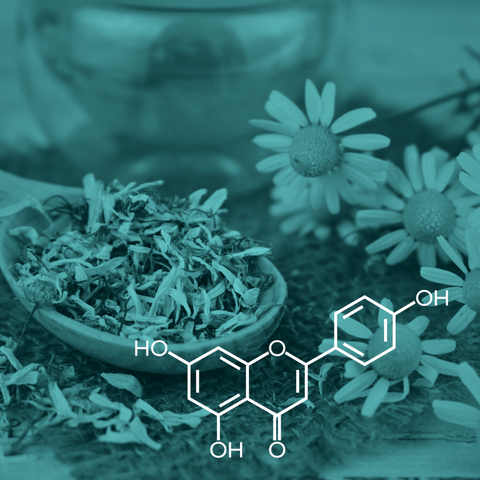Learning & education: Apigenin

This article will explore our current scientific understanding of apigenin’s effects on sleep, its mechanisms of action, and practical considerations for its use as a natural sleep aid.

Apigenin is principally known for its antioxidant properties [3], but it also presents hypoglycemic, anti-inflammatory, and cytostatic and cytotoxic properties for various cancer cells. Finally, apigenin possesses antidepressant effects, and its anxiolytic properties will be the focus of this article.

The largest group of naturally occurring polyphenols are flavonoids, including apigenin, which has become a subject of interest for nutritionists, researchers, and health enthusiasts alike. Known for its potential anti-inflammatory, antioxidant, neuroprotective, anticancer, and other beneficial effects, it is found in a variety of fruits, vegetables, and herbs.

Apigenin, also known as 4′,5,7-trihydroxyflavone, is a natural chemical from the flavone group found in vegetables and fruits, including olives, onions, celery, oranges, and chamomile. In this article, we delve into the therapeutic potential of apigenin, including its mechanism of action, benefits of apigenin, and current limitations in study.
